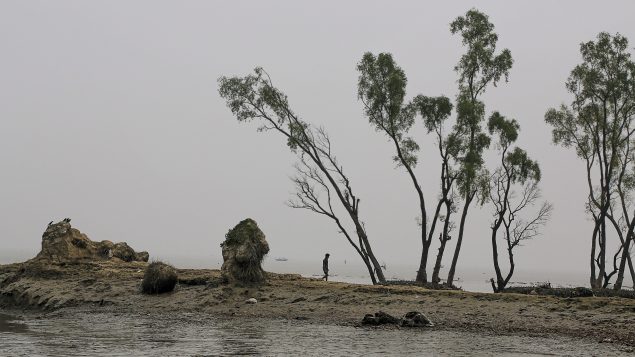A United Nations expert says the world is risking a “climate apartheid” scenario where the rich can pay to escape heat, hunger and conflict while the poor are left to suffer. Climate change threatens democracy and human rights, says UN Special Rapporteur on extreme poverty and human rights, Philip Alston in a new report.
“I think it’s strongly worded but appropriately so,” says Philip Loring a professor of geography at Canada’s University of Guelph. “This report, it seems to me, is born as much out of frustration as it is of urgency regarding climate change. And it reads very much as an indictment of inaction, but also (has a) very clear set of guidelines for we can do.
“The issue is that the impacts of climate change really are going to impact some people much more dramatically than others and that’s a human rights issue.”
Prof. Philip Loring agrees climate change will affect the poor and is a human rights issue.
Listen
(photo: Megan Hinther)
Already seeing effects, says professor
Loring says we are already seeing effects like crop failures, increases in the price of food, inability to access drinking water and storms and it is the poor who are experiencing them first.
“Canada’s Arctic is a great example. All around the Arctic, impacts on sea ice are affecting fish and game populations, affecting traditional societies’ ability to hunt and fish. And these are people who did not contribute to the problem in the first place.”
The report warns climate change could push 120 million more people into poverty by 2030 and that many will have to choose between starvation and migration.
States are failing, says UN expert
The UN rapporteur condemns governments around the world for not taking meaningful action on climate change. “States have marched past every scientific warning and threshold, and what was once considered catastrophic warming now seems like a best-case scenario,” says Alston. “States are failing to meet even their current inadequate commitments to reduce carbon emissions and provide climate financing, while continuing to subsidise the fossil fuel industry with $5.2 trillion per year.
“Maintaining the current course is a recipe for economic catastrophe.”







For reasons beyond our control, and for an undetermined period of time, our comment section is now closed. However, our social networks remain open to your contributions.